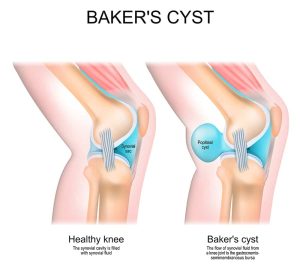

Plantar Fasciitis is a common and painful condition that involves inflammation of the plantar fascia, the thick band of tissue that runs across the bottom of the foot, connecting the heel to the toes. It plays a crucial role in providing support to the arch of the foot and absorbing shock during walking or running. When the plantar fascia becomes irritated or injured, it can lead to persistent heel pain, particularly with the first steps in the morning or after periods of inactivity.
At York-Med Physiotherapy & Wellness Centre, we specialize in treating plantar fasciitis and helping patients regain pain-free mobility. Our registered physiotherapists develop personalized, evidence-based treatment plans tailored to your specific condition, improving function and promoting long-term healing.
Plantar Fasciitis occurs when the plantar fascia becomes inflamed due to repetitive strain, trauma, or other contributing factors. This condition commonly presents as sharp heel pain, often experienced with the first steps in the morning or after long periods of rest. Over time, the repetitive strain on the fascia can lead to micro-tears, which cause discomfort and pain.
The development of Plantar Fasciitis is often due to overuse, especially in individuals who engage in weight-bearing activities like running or standing for prolonged periods. It can also result from:
Excessive Foot Pronation: An improper walking pattern that places additional stress on the plantar fascia.
Loss of Ankle Dorsiflexion: Tightness in the Achilles tendon can affect foot movement and lead to plantar fasciitis.
Improper Footwear: Wearing shoes with inadequate support, such as flat shoes or high heels, can strain the plantar fascia.
High BMI: Excess body weight can place extra stress on the feet and increase the risk of injury.
Medical Conditions: Diabetes and other systemic health conditions may increase susceptibility to plantar fasciitis.
Signs & Symptoms of Plantar Fasciitis
The most common symptoms of Plantar Fasciitis include:
Heel pain: Sharp or aching pain, particularly with the first steps in the morning or after sitting for long periods.
Tenderness: Pain at the anterior medial heel, often aggravated by standing or walking barefoot on hard surfaces.
Stiffness: Limited range of motion in the ankle, particularly with dorsiflexion.
Pain with activities: Pain can worsen with activities such as stair climbing or walking for extended periods.
Toe walking: Some individuals may develop a limp or prefer toe walking to avoid pain.
Physiotherapy Management for Plantar Fasciitis
At York-Med Physiotherapy & Wellness Centre, our physiotherapists employ a multidisciplinary approach to treat Plantar Fasciitis, aiming to reduce pain, improve foot function, and prevent future injuries. Our treatments are based on the latest clinical research and tailored to your individual needs.
1. Strength Training
According to a study by Rathleff et al., 2015, high-load strength training exercises can significantly improve outcomes for patients with plantar fasciitis. This approach involves strengthening the plantar fascia and surrounding structures, helping to promote tissue healing, reduce pain, and improve overall function.
2. Stretching Exercises
Stretching is essential for improving flexibility and reducing tension in the Achilles tendon and plantar fascia. Common stretching techniques include:
Plantar Fascia Stretch: Gently pressing on the base of the toes while crossing the affected leg over the contralateral leg to stretch the plantar fascia.
Achilles Tendon Stretch: Performing stretches with the affected leg behind the other while keeping the toes pointed forward to elongate the Achilles tendon.
3. Manual Mobilizations & Manipulations
Manual therapy techniques, including joint mobilizations and soft tissue manipulations, can help reduce pain, increase mobility, and relieve tightness in the affected areas.
4. Foot Orthoses
Custom-made foot orthotics may be recommended to correct foot biomechanics and reduce strain on the plantar fascia. While foot orthoses offer short-term relief, they can help support the arch, prevent over-pronation, and improve foot alignment, contributing to long-term pain management. Orthotics can be prescribed by our registered chiropodist or physiotherapists.
5. Education & Prevention
Our physiotherapists provide education on proper footwear, posture, and techniques for daily activities to help prevent the recurrence of plantar fasciitis. We emphasize the importance of proper warm-ups, stretching, and strengthening exercises to maintain healthy foot function.
At York-Med Physiotherapy & Wellness Centre, we are committed to providing high-quality care for individuals suffering from Plantar Fasciitis. Our team of experienced physiotherapists takes a holistic approach to treatment, ensuring that all aspects of your condition are addressed to promote healing and prevent future injury.
Evidence-Based Treatments: Our physiotherapists utilize the most current research and techniques to manage Plantar Fasciitis effectively.
Personalized Care: Every treatment plan is individualized to meet your unique needs and lifestyle.
Convenient Location: We are easily accessible for residents of Richmond Hill, offering a comfortable and supportive environment for your recovery.
Get Relief from Plantar Fasciitis Today
If you’re experiencing pain in your heels or suspect you may have Plantar Fasciitis, contact York-Med Physiotherapy & Wellness Centre today. Our team is here to help you find relief, improve your foot function, and get back to living your life pain-free.
Call us now or book online to schedule an appointment and take the first step towards recovery!
© 2020 York-Med Physiotherapy and wellness center | Richmond Hill & Vaughan. All Rights Reserved.
Designed by Magham Agency